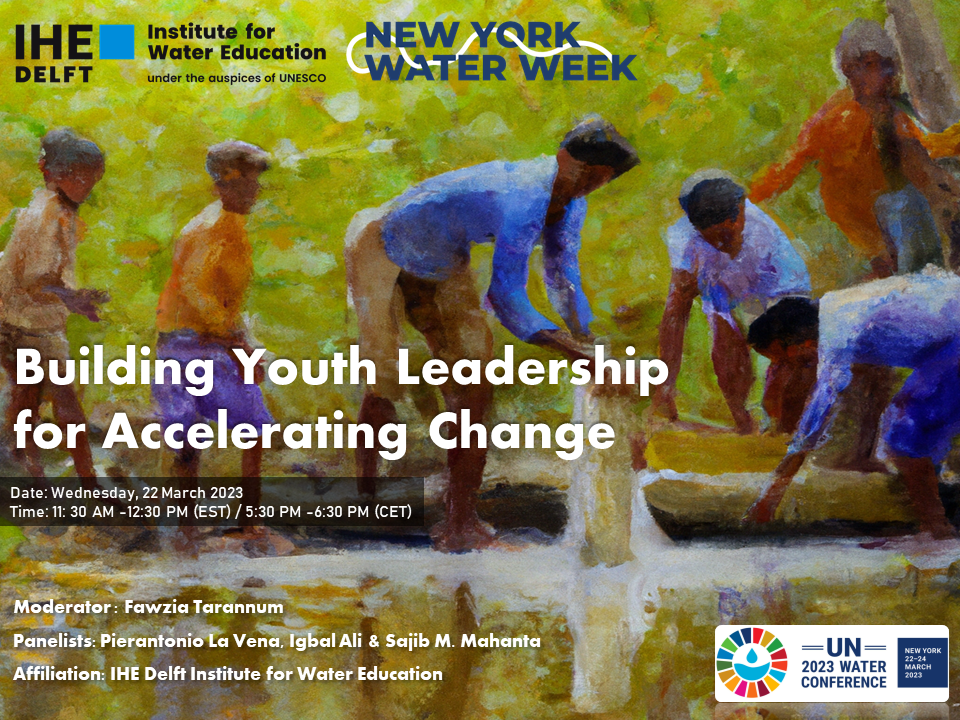
- Public
Young people play an important role in transforming societies and empowering this largely untapped potential while engaging with them as equal partners in development can fundamentally shape our societies for the better. Three decades ago, the message that emerged from the International Conference on Water and the Environment held in Dublin highlighted that involving different stakeholders in planning, policy-making and negotiating shall help in finding equitable ways to share limited water resources among its many competing demands. This message still holds well in the light of the 2015 development agenda, the emphasis of which lies on jointly creating the world we want. We are half way into the 2030 Agenda and even to this date 2 billion people use drinking water sources contaminated with faeces, while 3.6 billion people are still living with poor quality toilets that ruin their health and pollute their environment. Every day, more than 800 children die from diarrhoea linked to unsafe water, sanitation and poor hygiene.
According to the United Nations, at the current rate of progress, 1.6 billion people will still lack safely managed drinking water, 2.8 billion people will lack safely managed sanitation, and 1.9 billion people will lack basic hand hygiene facilities by 2030. Thus, there is an urgent need to accelerate the change that is needed. Globally, the youth in the age group of 15-24 years constitute 16 per cent of the population. It’s imperative that our educational institutions redefine the learning process to ensure that the youth is better equipped to recognize and take action on water-related issues in a changing climate.
In the backdrop of this the dialogue on “Building Youth Leadership for Accelerating Change” aims to engage with young scholars from different regions to reflect on the present education system and deliberate on how we can redefine it to produce young inclusive leaders who are conscientious, responsible, empathetic and ready to catalyse change. The dialogue shall further provide a platform that gives young people a voice and a chance to articulate their curiosities and perspectives on the learning pathways.
The outcome of the dialogue shall be a summary of recommendations aimed at building youth leadership for accelerating change, and it will be promoted through the IHE Delft Institute for Water Education’s webpage and social media platforms.
Moderator: Dr. Fawzia Tarannum, Fulbright Hubert H. Humphrey Fellow, Climate Reality Leader and M.Sc Water and Sustainable Development Student at IHE Delft from India
Speakers:
- Pierantonio La Vena, M.Sc Water and Sustainable Development Student at IHE Delft from Italy
- Igbal Ali, M.Sc Water and Sustainable Development Student at IHE Delft from Sudan
- Sajib Mahanta, M.Sc Water Governance Student at IHE Delft from India
Live impressions from UNHQ
-
-
- Lindsey Kenyon, Groundwatch joint master programme, IHE Delft from United States (TBC)
Valentina Uribe Jaramillo Groundwatch joint master programme, IHE Delft from Colombia (TBC)
- Lindsey Kenyon, Groundwatch joint master programme, IHE Delft from United States (TBC)
-
